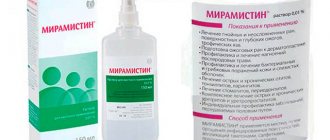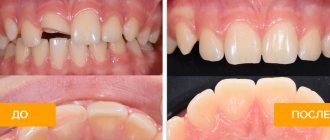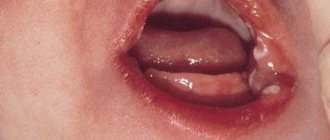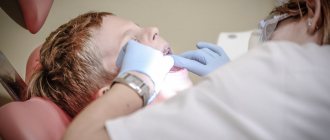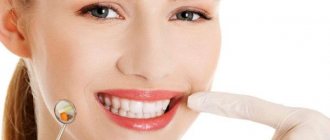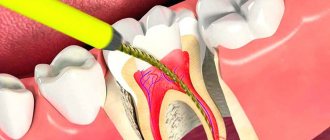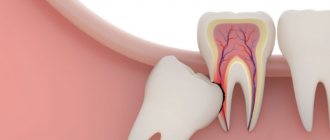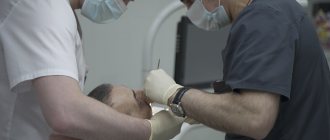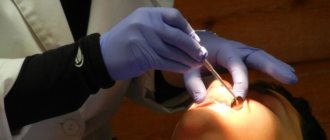Dental treatment in childhood is in many cases accompanied by local anesthesia, as a result of which sensitivity disappears not only in the causative tooth, but also in half of the jaw, including the lips. Children are unable to adequately assess their condition, and the sensation of painless biting is of considerable interest, so situations when children bite their lips until they bleed happen very often.
The child bit his lip
Why does this happen
Remembering his feelings after anesthesia at the dentist, every person can say that the numb lip seemed to him like a foreign body. It was not perceived by neighboring tissues because it was devoid of any sensitivity. And even if this seems strange and unusual to an adult, what can we say about a child who suddenly feels that something soft is lying on his lower lip, for example. Of course you'll want to bite.
If local anesthesia was performed on the lower jaw, then the lower lip becomes numb. And this is even more strange for a child. It constantly seems to him that drool is flowing from his mouth, and his lip also prevents him from speaking. And the baby begins to bite it mechanically. Moreover, just a few minutes ago some kind of dental procedure was performed, and the child is still experiencing stress.
How hard can you bite your lip?
Sometimes a child manages to bite a numb lip so that after the local anesthesia wears off, he begins to experience severe pain. You can tell by the baby’s nervous behavior and his crying when the “freezing” has ended.
Important! Try to convey to the child that he bit his lip himself. Otherwise, the baby will associate this with going to the dentist, and he will have an additional fear of these doctors.
A lump appears on a heavily bitten lip. Its color is noticeably darker, sometimes it is a full-fledged purple hematoma. Often children bite their lips and cheeks until they bleed, and this does not stop them, but only stimulates them. By biting himself, the baby tries to stop the bleeding, but harms himself even more.
If the lip is swollen after anesthesia, but has hardly changed color, it’s okay. But parents, having noticed this, must make sure that the child does not get carried away and aggravate the situation.
How do you feel after anesthesia?
After anesthesia, a zone of numbness in the cheeks, lips, and tongue remains for 2 to 4 hours. The child does not feel the tissue in these areas, so he can bite and injure the soft tissue. It is imperative to ensure that the child does not bite or injure soft tissues. If an injury does occur, it is necessary to treat the damaged area with an antiseptic, apply Solcoseryl or Metrogyl dental paste and consult your doctor.
Reviews
Staritsyna Alina Dmitrievna
January 26, 2022
My child was rolling on the floor, screaming and FIGHTING with doctors at other dentists. Although we always come to an agreement with her, this rule did not work for dentists. Here we cured ALL TEETH (7 pieces) without anesthesia at all. This is the best thing that can ever happen to a child. Happy defeated all the carious monsters. He loves his fairies, every week he asks to see the dentist, like going to a shopping mall. If I say that it’s not time yet, I get very upset. During treatment, they put on beautiful glasses, turn on cartoons of your choice, give a lot of praise and gifts at the end. Besides this, the doctors are simply amazing. They clearly explain the treatment plan right away. They indicate a cost that has never been higher (usually lower). They start carefully with light teeth, monitor the child’s condition, and if the condition allows, the child is ready, then they treat more. Fewer trips to the doctor - easier for parents)) Excellent diagnostics and examinations, very attentive to the teeth and the children themselves, and their crazy parents)) Our fairies: Doctor (professional and the most gentle, sweet, kind young lady) - Balakhiedova Rena Sergeevna Assistant (head nurse - a brilliant person in dealing with children) - Olga Nikolaevna Mayevskaya Assistant (a wonderful sunny young lady, an ideal assistant to the doctor and support for the child + paints beauty on the cheeks after the appointment) - Olga Dubova In the clinic itself there is a corner for children with toys, a kitchenette, mini -shop, coloring books and cartoons. Everything is beautiful, cute and there are balloons all around. My daughter really liked the water cooler, from which she herself, like an adult, filled her glass with water. What the people who created this clinic and work in it do is more than dentistry. This is the key to a healthy psyche in the child in the future. Thank you for what you do every day. You are super heroes living among people. Thank you)) read more…
Pasechny Dmitry
January 13, 2022
I express my gratitude to E. A. Khalatov. The doctor corrected the situation with the detached retainer on December 31! The doctor agreed to help me (not his patient) a few hours before the New Year! It is very nice. read more…
Pasechny Dmitry
January 13, 2022
I express my gratitude to Andrey Aleksandrovich Morozov for solving my problem! I would especially like to note the attentiveness of the specialist. read more…
Pasechny Dmitry
January 13, 2022
He underwent orthodontic treatment with braces from A.N. Viktorov. The result is excellent! I express my gratitude to the doctor.
Markova Olesya Vladimirovna
09 January 2022
I went to the clinic for professional teeth cleaning. Because This was not the first time I performed this procedure, so there is something to compare it with. Daria Andreevna was very attentive and careful during the procedure. As a patient, I did not experience any discomfort either during the procedure or after it. The same thing happened in the treatment of caries. The expression “I’ll offend you a little”, which the doctors at the clinic use when they give an anesthetic injection, is very touching. read more…
Markova Olesya Vladimirovna
January 09, 2022
I contacted Dmitry Yuryevich in connection with the discovery of a granuloma, due to which it was necessary to remove a tooth. Removal was painless and quick. Dmitry Yurievich gave very detailed recommendations for the recovery period. I express my gratitude for the call from the administrator from the clinic at the request of Dmitry Yuryevich the next day after the procedure in order to clarify my well-being after tooth extraction. read more…
Treatment options
What to do if a child bites his lip after anesthesia? First we need to assess the scale of the problem. If there is no hematoma or bleeding, and the sponge is only slightly swollen, then soon everything will go away on its own. Perhaps everything will be fine in the morning.
If a child has bitten the skin to the point of wounding, it needs to be treated. Because a sore lip will interfere with speaking normally and leading an active childhood life with outdoor games and putting anything in your mouth. How to treat?
Cold
Cold will help reduce bleeding, eliminate pain and reduce swelling. To do this, you can take ice or a piece of frozen semi-finished product from the freezer, wrap it in a clean soft cloth (a handkerchief, for example) and apply it to your lip for 1-2 minutes. You should not hold it for a long time to avoid tissue necrosis.
Analgesics
They can be used if the child is in great pain and does not allow any medical manipulation to be performed on the lip. Any children's painkillers are suitable: ibuprofen, nimesulide and other analgesics approved for a specific age.
Local antiseptics
Iodine and brilliant green are gradually becoming a thing of the past, and it is definitely not recommended to use them for damaged mucous membranes. It is best to take Miramistin. Its advantages for use with a bitten lip are obvious:
- does not stain the skin;
- does not sting;
- will not cause harm if part of the product gets into the mouth;
- tasteless.
Miramistin is a liquid solution. You can apply it through a spray bottle, which is included with the purchase of the antiseptic. Or you can soak a cotton swab in it and apply it to the child’s bitten lip.
Miramistin has only one drawback: it is quite expensive. A 150 ml bottle costs from 300 rubles. Its analogue is Chlorhexidine: it can also be used to treat a baby’s damaged lip.
Anti-inflammatory ointments
After treatment with an antiseptic, the wound on the bitten lip must be lubricated. And not all medications can be used, because a child can easily lick off the applied ointment or gel. This means that the product must be safe to swallow. The doctor should select it in accordance with the age of the small patient.
Important! You should also consult a doctor if there is heavy bleeding, severe pain, or the wound does not heal for a long time.
Treatment for a bitten lip
The best way to deal with the fact that a child has bitten his lip is prevention - before going to the dentist, parents should explain what will happen after treatment and teeth and warn against chewing their own lips. It is important to closely monitor your child, especially for preschoolers, as children of this age quickly forget about parental warnings. It is advisable to stay nearby throughout the entire period of anesthesia wearing off, observing and constantly reminding you of the danger of careless movements.
Read: Pain relief during tooth extraction
If a child does bite his lips, then you should not panic - the oral mucosa has a high regenerative ability, and saliva has disinfecting properties due to the content of lysozyme, so the healing process will take place quite quickly.
During this period, the child should carefully monitor oral hygiene, thoroughly brushing the teeth twice a day and rinsing the mouth after each meal. As you know, there are a huge number of opportunistic microorganisms in the oral cavity, so it is recommended to use antiseptics. Today, there are many different drugs in various forms of release - sprays, solutions, lozenges. The most common solutions include Furacillin, Miramistin, and Chlorhexidine. Faringosept lollipops also contain an antiseptic component and at the same time have a pleasant taste.
Local antiseptic
To accelerate tissue regeneration, it is recommended to use “Solcoseryl” - this is a gel that helps accelerate metabolic processes and improve the trophism of damaged tissues, as a result of which healing occurs faster. The drug should be applied to the cleaned surface of the wound, so you must first rinse the mouth.
In addition to medications, medicinal herbs - chamomile, St. John's wort, calendula - help relieve inflammation and swelling. They should be poured with boiling water and left to infuse until the required concentration, after which you should make oral baths - put the solution in your mouth and hold for a minute and a half.
During the recovery period, it is recommended to adjust the diet - exclude spicy and salty foods, as they have a strong irritating effect on the mucous membrane. The same goes for hot and cold drinks - a sharp change in temperature slows down the healing process of a bitten lip.
What not to do
Lip biting should not continue during treatment and parents should monitor this. Although, the child is unlikely to do this, because without anesthesia it is quite painful. But you still need to spend as much time as possible with your baby. You should also not do the following:
- tear off the crust;
- treat with iodine (it can burn the delicate skin of the lips)
- apply local medications that were not prescribed by the doctor (the child may simply be poisoned);
- apply powdered antibiotics to the wound;
- Allow the child to touch the lip with his hands, tongue and teeth.
If no action is taken, there is a risk that the child will develop complications. Most often this happens when the wound becomes infected. In very young children or in children with weak immunity, a bitten lip can develop into stomatitis with the formation of multiple ulcers throughout the oral mucosa.
What does it look like?
Without feeling pain, the child unknowingly harms himself, and a terrifying picture appears before the parents - the bitten lip increases significantly in volume, bleeds, scratches, cuts and even ulcers are visible on it. As tissue swelling increases, the lip turns out, which makes it difficult to eat and drink, and the child’s speech is distorted.
After the anesthesia wears off, the damaged lip begins to bother the child, pain and pulsation appear in the place where the tissue is bitten. The wounds dry out and become covered with crusts - at this stage it is important to prevent additional infection of the wound.
Prevention
Local anesthesia wears off within 2 hours, and this time must be completely devoted to the child. If parents are driving him in a car, then another adult should be seated in the back seat next to the child seat so that he can calm the baby and make sure that he does not bite his lip.
If a child goes to kindergarten or school immediately after anesthesia, you need to ask the caregiver or teacher to keep an eye on him. But this is still undesirable, because, firstly, teachers have too many children to focus on one pupil or pupil. And, secondly, if a child has had a tooth treated, then after the anesthesia wears off, his gums may begin to hurt (from an injection or other medical manipulations). If there was an extraction, sometimes the hole begins to ache. And it is better that one of the parents or close relatives is nearby.
